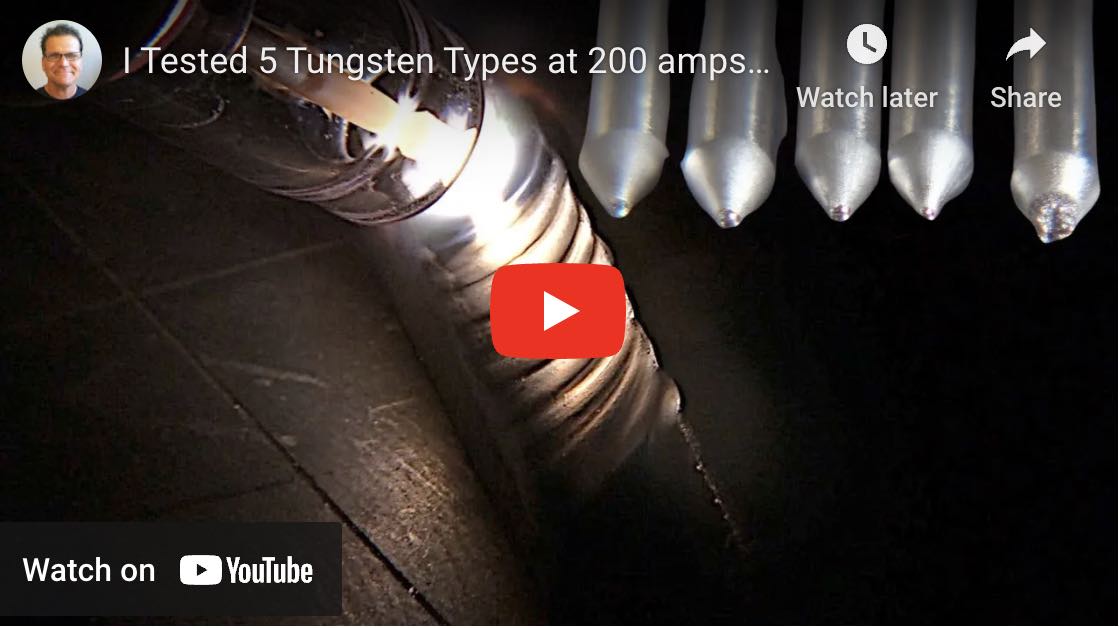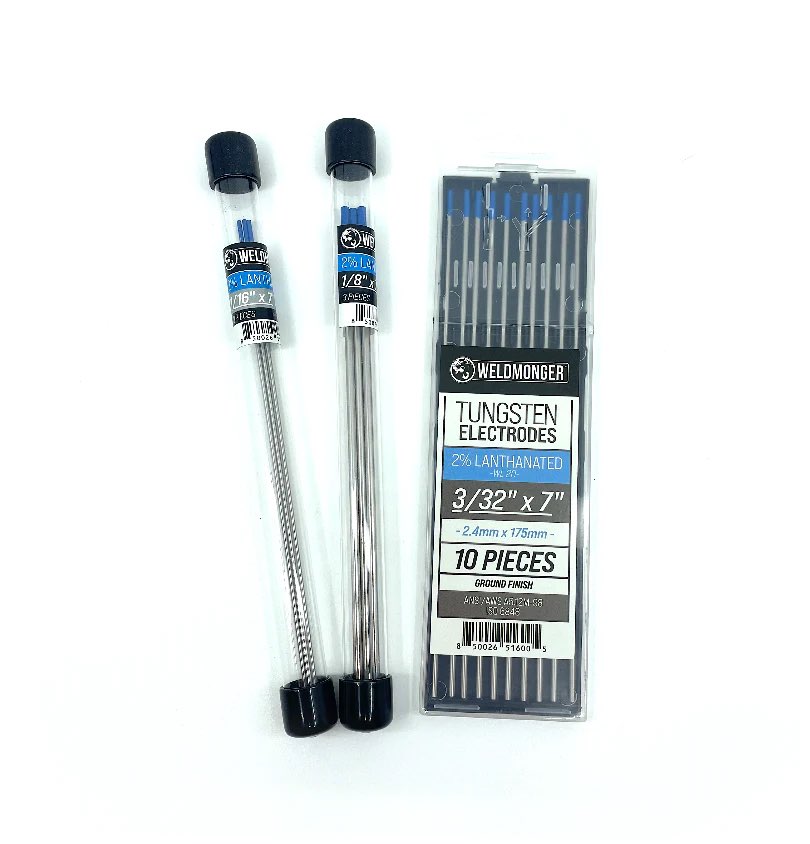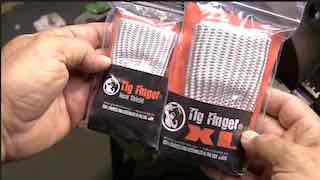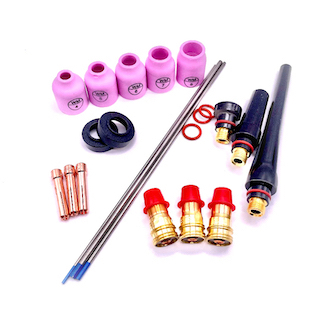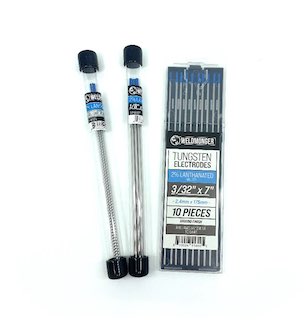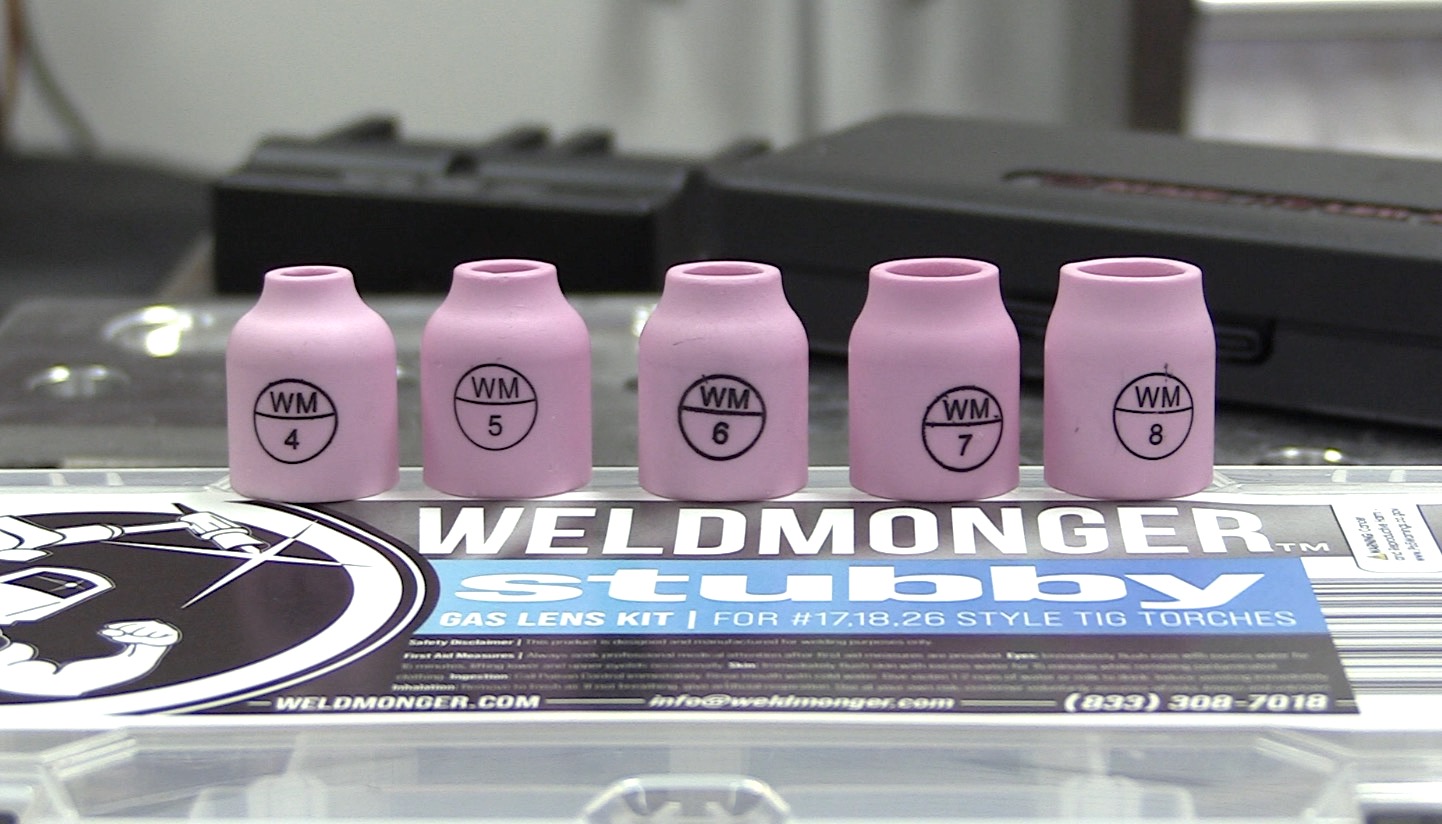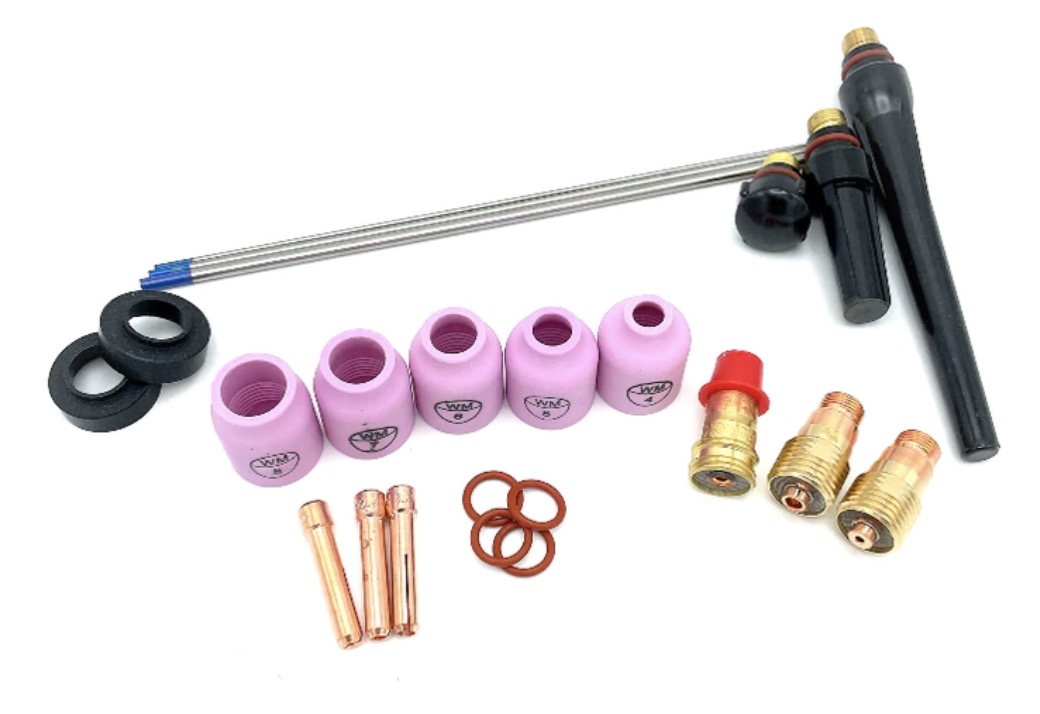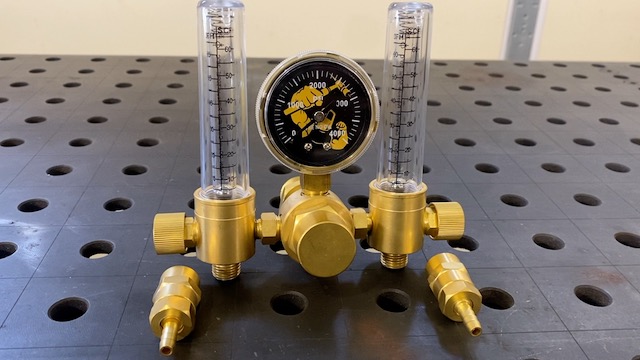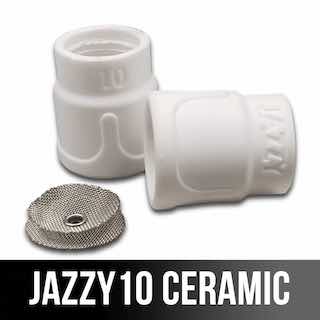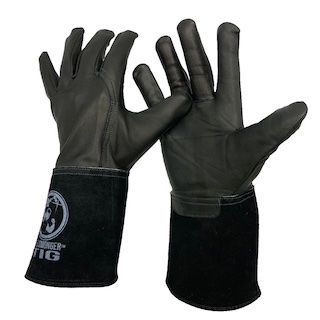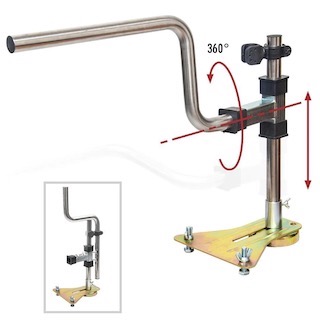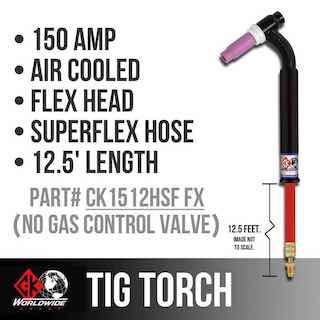Which Color Tungsten Electrode works best for Aluminum and Stainless Steel?
First off, I believe that 2% lanthanated is the best all around tungsten and I use it on Aluminum, Carbon Steel, Stainless steel, Titanium, Magnesium, Nickel alloys, Chromoly, tool steels, and even pot metal.
Great prices on quality tungsten at Weldmonger.com
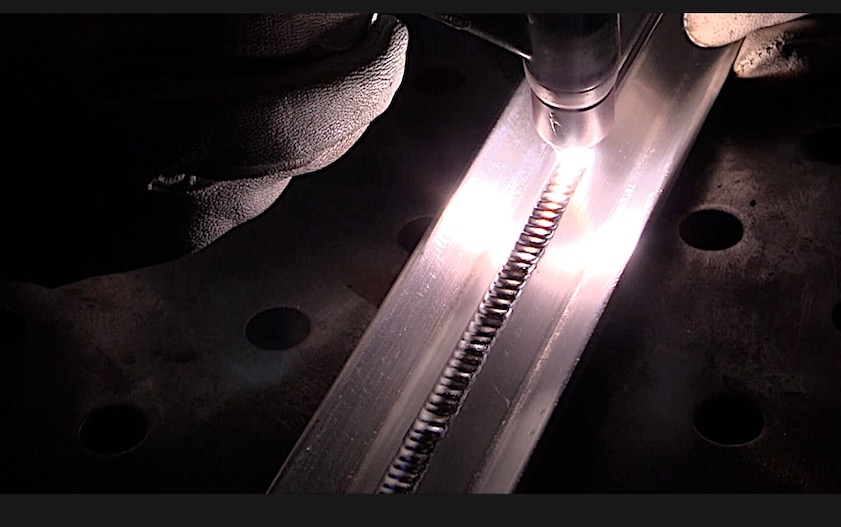
But I met with a couple of custom chopper builders recently who preferred 2% Ceriated over 2% lanthanated.
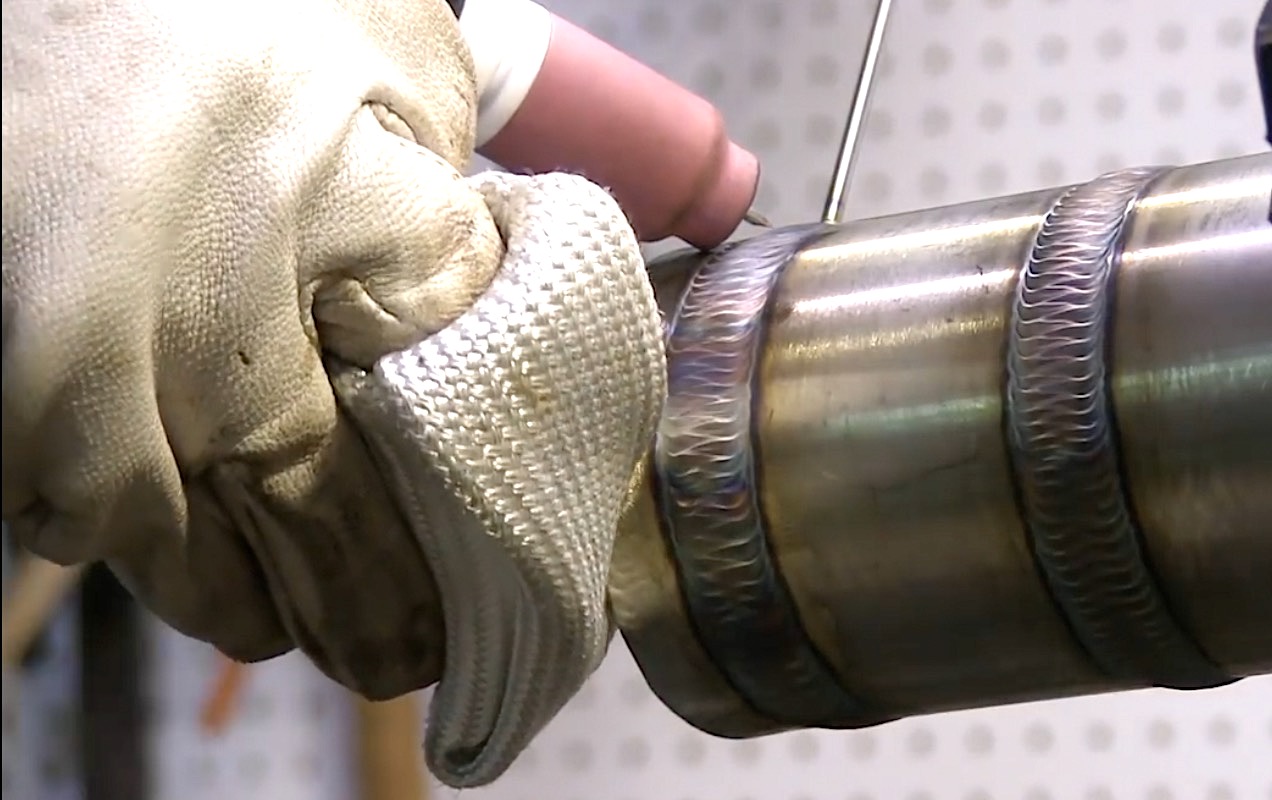
Since they both welded mainly DOM carbon steel tubing and 4130 chromoly... and only occasionally weld thin aluminum, I guess that makes perfect sense.
We all do different types of welding work so the best tungsten for one person is not always the best for everyone.
What do the Colors of Tungsten mean?
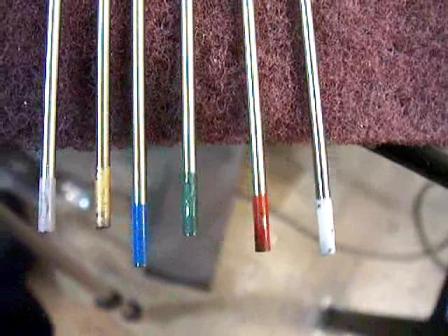
Tungsten electrodes are color coded according to the main alloying elements but the problem is , you cant depend on the color codes always staying the same.
(something do with the AWS reclassifying the color codes to match the International standards)
Red 2% thoriated tungsten electrode seems to be the exception being Red from way back.
But other tungsten electrodes like 2% ceriated have changed color along the way...2% Ceriated was orange at one time, and is now Grey (most of the time.)
So it makes sense to specify tungsten by alloy type rather than color.
From the time I first started tig welding in school back around 1978, until around 1990 when I switched careers from pipe welder to aerospace tig welder, 2% thoriated tungsten was the only electrode provided to us welders by the contractors.
Since I was a pipe welder strictly welding on carbon steel, stainless, and a bit of inconel, that made perfect sense.
But you would think that once I switched industries and started welding jet engine parts, different tungsten would be provided for tig welding aluminum and magnesium.
Nope.
At least not at first.
We used 2% thoriated for almost everything.
Pure tungsten was rarely available or used in that shop.
Back then, it was pretty much a choice between 2% thoriated (red) for DC... or pure tungsten (green) for AC.
A lot of the AC welding was on thicker castings so the 2% thoriated handle much higher amperage than pure tungsten.
As long as we rounded the tip using reverse polarity, the 2% thoriated worked pretty well.
Keep in mind, all the tig welding machines in that shop were miller syncrowave 250s.
I remember my first time trying zirconiated (brown) tungsten for aluminum and thinking, "this holds up way better than pure tungsten...why would anyone choose pure tungsten over zirconiated?"
As TIG inverters came on the scene, other tungsten alloys were also being introduced.
Ceriated tungsten seem to become popular around the same time as newer inverter power sources.
I remember my first Miller Dynasty 200 came with a laminated quick start guide that discouraged using pure tungsten for AC..but rather recommended 2% ceriated tungsten.
Later on, I learned from a former Miller rep that adding " pure tungsten not recommended" to the quick start guide was part of an effort to reduce customer phone calls about hard arc starts.
Coincidentally, there were also some arc start issues with early Miller dynasty TIG welders....mine included.
Ceriated tungsten was and still is the tungsten Miller typically recommends for both AC and DC with their Dynasty inverter TIg welders.
I have done plenty of testing to see which tungsten electrode is best for my type of work and its 2% lanthanated ...hands down.
So which color tungsten electrode is best for aluminum and stainless?
aHere is my opinion...
If you weld mostly Stainless but sometimes also need to weld aluminum at low to mid range amperage, then 2% ceriated (grey) is a good choice.
If you weld both stainless and thicker aluminum that requires mid to high amperage, and restarts are a big deal, then purple tungsten might be the ticket.
If you weld a lot of both stainless And Aluminum, and want to simplify with one single type of tungsten electrode, then 2% lanthanated is a really good choice.
Since everyone does different work, the best way to decide on a tungsten that works best for you is to try a 3 pack of assorted tungsten.
We just happen to have those at weldmonger.com
We have 10 packs of tungsten too.


